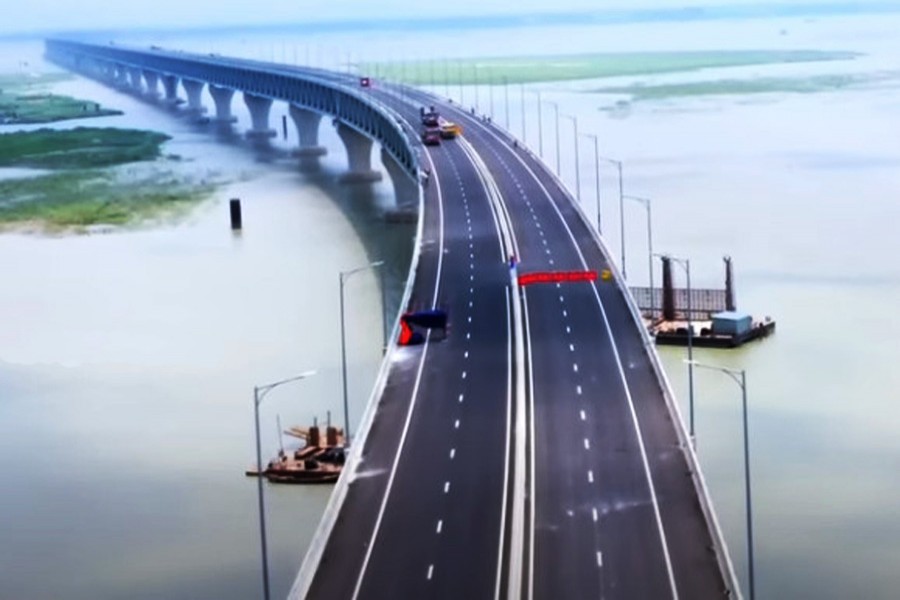If the officials of the Padma Multipurpose Bridge (PMB) are right to consider dredging in the upstream of its location a threat to it, the view should not be taken lightly. Well, dredging in the downstream, however, poses no such threat, according to the project authorities. Now the question is, how grave the threat is and if it is immediate or will give enough time to obviate it. The officials involved with the maintenance of the bridge fear that random dredging within 10-15 kilometre of the bridge in the upstream can prove dangerous. Given treacherous nature of shifting soil of the river bed and a sudden change in channels, river erosion has ever remained unpredictable. Even at a far greater distance, dredging can change the contour of the river prompting sudden changes in the direction of water flows, particularly in the monsoon and post-monsoon period.
However, there is a catch-22 situation as the project authorities have their jurisdiction only within 250 metres upstream and downstream from the bridge proper. But the entities like the Bangladesh Inland Water Transport Authority (BIWTA) and the Bangladesh Water Development Board (BWDB) have authorities over all matters related to rivers. What happens in this country when different government organisations are involved with an issue ---one that is challenging and demand maximum cooperation between and among them, is nothing to boast of. Putting their act together mostly takes eternity if it ever happens. Even these corporations and agencies are ill-equipped to have a measure of the potential threat unplanned dredging in the upstream poses to the Padma Bridge. Experts in river training are the right people to have adequate knowledge of the swirling current that might carry away all things on its path. The good thing is that extensive river training was carried out for long before confirming the sustainability of the bridge for at least 100 years.
What, however, is a cause for concern is the total disappearance of the two-kilometre long islet (char) stretching from pier-13 to pier 27 by now. The islet, let it be noted, had been formed just before the construction of the bridge began. Does it not indicate the unpredictability of the river's channel shift? Dredging can cause irreparable damage to infrastructure, human settlements of hundreds of years old and land masses. It is therefore prudent to take opinion of the river training experts before carrying out extensive dredging in the upstream. What is the urgency of dredging now that the transportation has become easier by road and the ferry service is no longer an imperative?
After all, the Tk 301.93-billion bridge project cannot be made vulnerable either for facilitating ferry service or for the spitting bonanza from dredging for some influential people whose main concern is immediate big personal gains no matter if the country's interests or future have to be sacrificed. The maintenance team's command area of 250 metres on either side of water cannot serve the purpose. It has to be incorporated with the overall course, including river erosion and sudden channel shifts and littoral conditions in order to offset any threat to the bridge. It would be wise to form a permanent commission involving river training experts, the bridge authority, BIWTA and BWDB to get the safety of the bridge protected.


